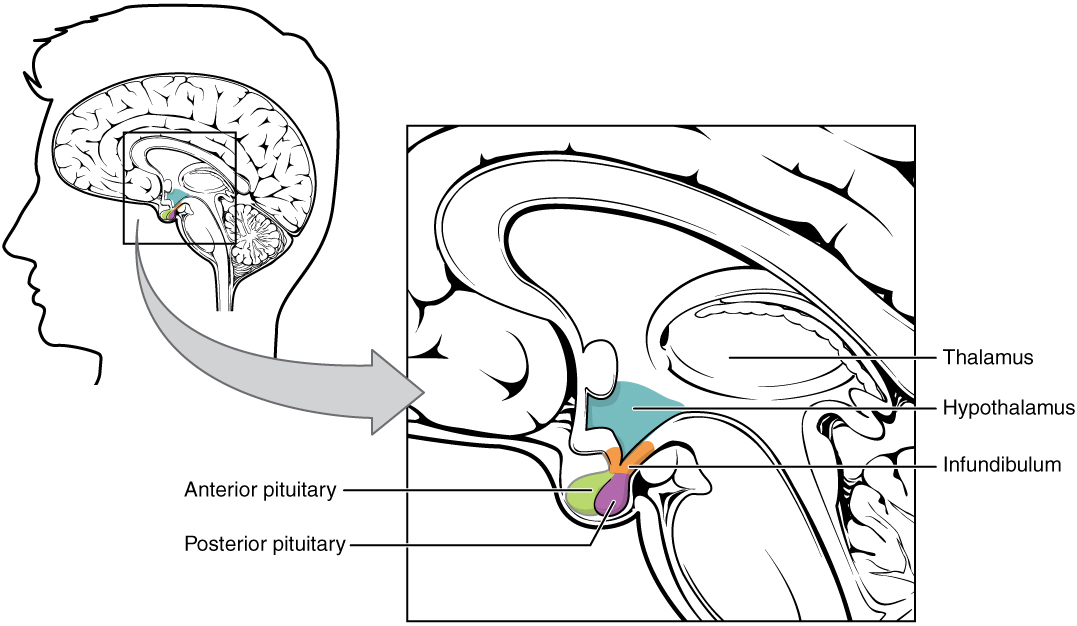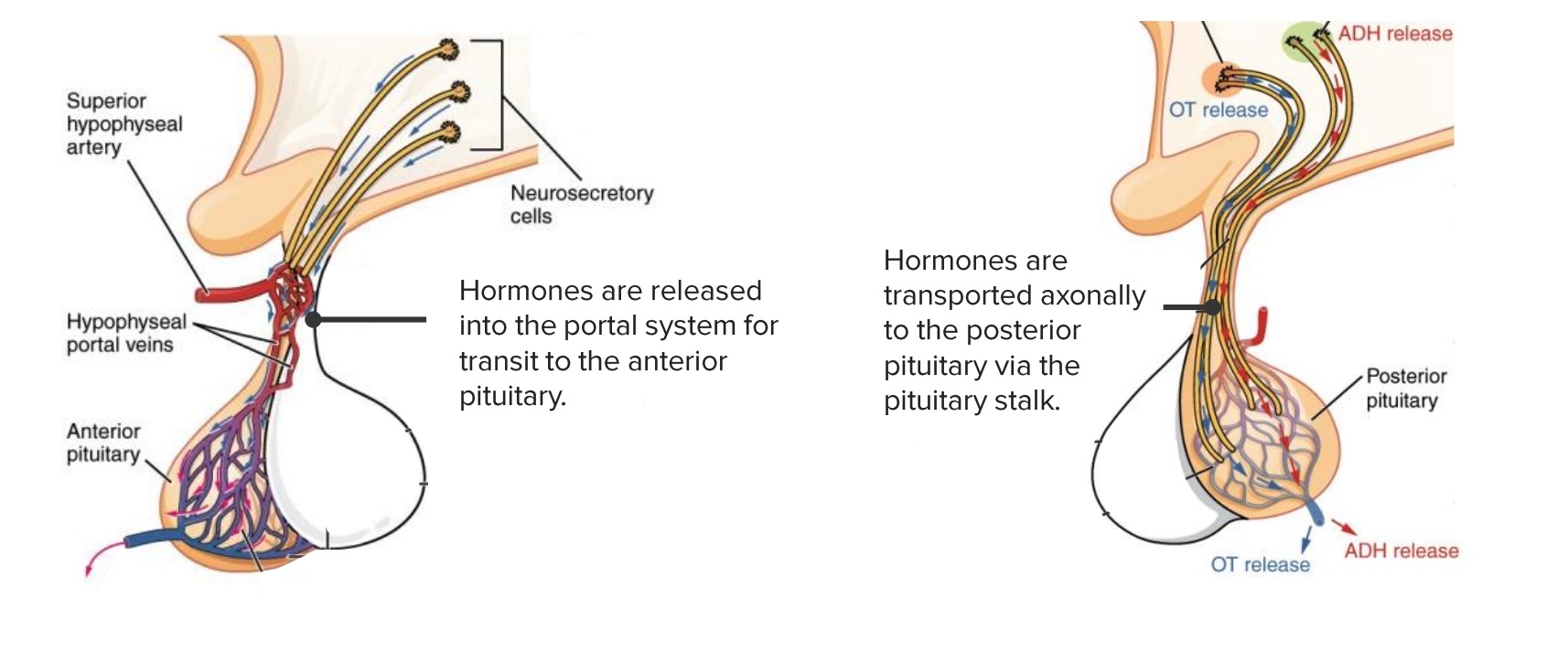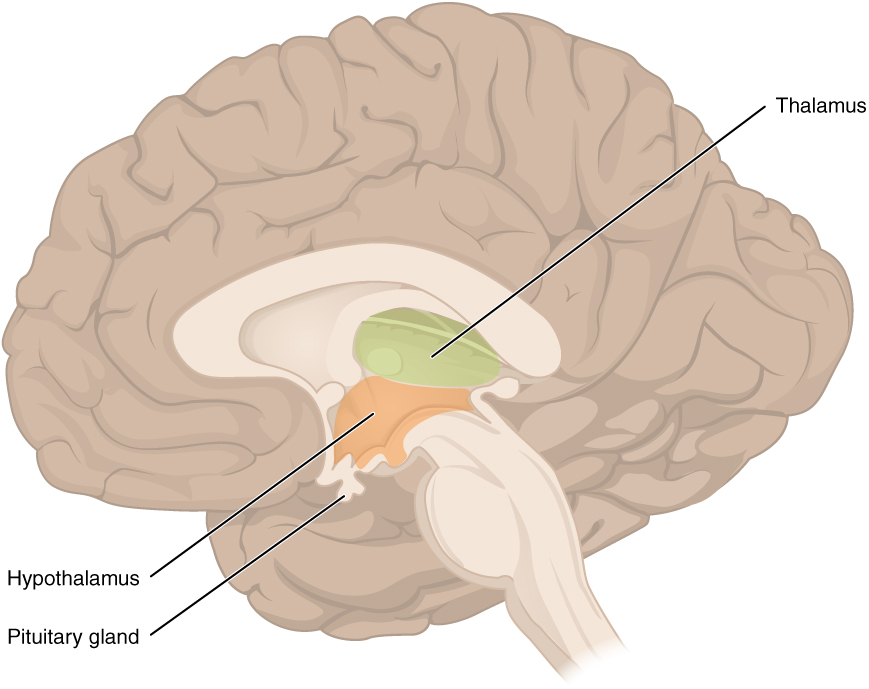Playlist
Show Playlist
Hide Playlist
Review of Hypothalamic and Pituitary Physiology
-
Slides 01-02-01 Adrenal Pituitary.pdf
-
Download Lecture Overview
00:01 Let's revise some of the physiology and anatomy of the hypothalamic pituitary axis. 00:08 The anterior pituitary gland secretes a number of different hormones. 00:13 Let's revise some of these before we get into the cases. 00:18 Adrenocorticotropic hormone is activated by CRH or corticotropin-releasing hormone which is secreted from the hypothalamus. 00:26 Thyroid-stimulating hormone likewise is activated in the anterior pituitary by thyroid-releasing hormone from the hypothalamus. 00:35 Prolactin, generally responsible for activation of lactation, is inhibited by hypothalamic dopamine. 00:45 Gonadotropin-releasing hormone secretes two hormones from the anterior pituitary. 00:51 These are luteinizing hormone and follicle-stimulating hormone, which are important in the control of reproduction. 00:59 And then finally, growth hormone is inhibited in response to somatostatin. 01:05 Moving on to the posterior pituitary gland, it's a little less complicated, there are only two hormones here to be aware of. 01:13 Firstly, oxytocin, which is necessary for parturition, and is secreted in and around pregnancy. 01:21 And then finally, antidiuretic hormone also called vasopressin, which regulates water balance. 01:29 Let's go through these in the schema that shows you exactly how the hypothalamic hormones activate the anterior pituitary hormones to then go on and perform their metabolic functions. 01:41 Starting with corticotropin-releasing hormone, ACTH is released, and then acts on the adrenal cortex to produce cortisol, which has important functions in many metabolic actions. 01:54 Likewise, thyroid-releasing hormone from the hypothalamus causes thyroid-stimulating hormone release from the anterior pituitary, which then acts on the thyroid gland. 02:04 The thyroid gland is actually the largest independent endocrine organ. 02:08 This will resecrete thyroid hormones, which also have a major role in metabolism. 02:14 Thyroid-releasing hormone will also activate prolactin, interestingly. 02:20 Prolactin has an effect on the breast and is mainly concerned with lactation. 02:26 And then finally, dopamine from the hypothalamus has a negative action on prolactin release. 02:33 Gonadotropin-releasing hormone will activate FSH and LH in the anterior pituitary. 02:39 These two hormones have actions on the gonads. 02:43 In the male, mainly androgen production, and in the female, estrogen production. 02:48 Somatostatin actually inhibits growth hormone release. 02:52 But growth hormone secreted from the anterior pituitary will have endocrine targets particularly in the liver where insulin-derived growth factor is released, and then it will have nonendocrine targets in many tissues around the body. 03:05 Moving on to the posterior pituitary, the only two significant hormones to be aware of secreted from the posterior pituitary gland are oxytocin which acts on uterine muscles and the mammary glands, and ADH which has an important role in renal tubular reabsorption of sodium. 03:24 ADH is antidiuretic hormone. 03:27 As we'll discuss in the cases, this has important effects on sodium metabolism and water balance.
About the Lecture
The lecture Review of Hypothalamic and Pituitary Physiology by Michael Lazarus, MD is from the course Pituitary and Hypothalamic Disorders.
Included Quiz Questions
Prolactin secretion by the anterior pituitary is inhibited by which hypothalamic hormone?
- Dopamine
- Thyrotropin-releasing hormone
- Corticotropin-releasing hormone
- Gonadotropin-releasing hormone
- Somatotropin-releasing hormone
Which posterior pituitary hormone acts on kidney tubules and regulates water balance in the body?
- Antidiuretic hormone (ADH)
- Aldosterone
- Oxytocin
- Cortisol
- Thyroxine
Customer reviews
5,0 of 5 stars
| 5 Stars |
|
5 |
| 4 Stars |
|
0 |
| 3 Stars |
|
0 |
| 2 Stars |
|
0 |
| 1 Star |
|
0 |






